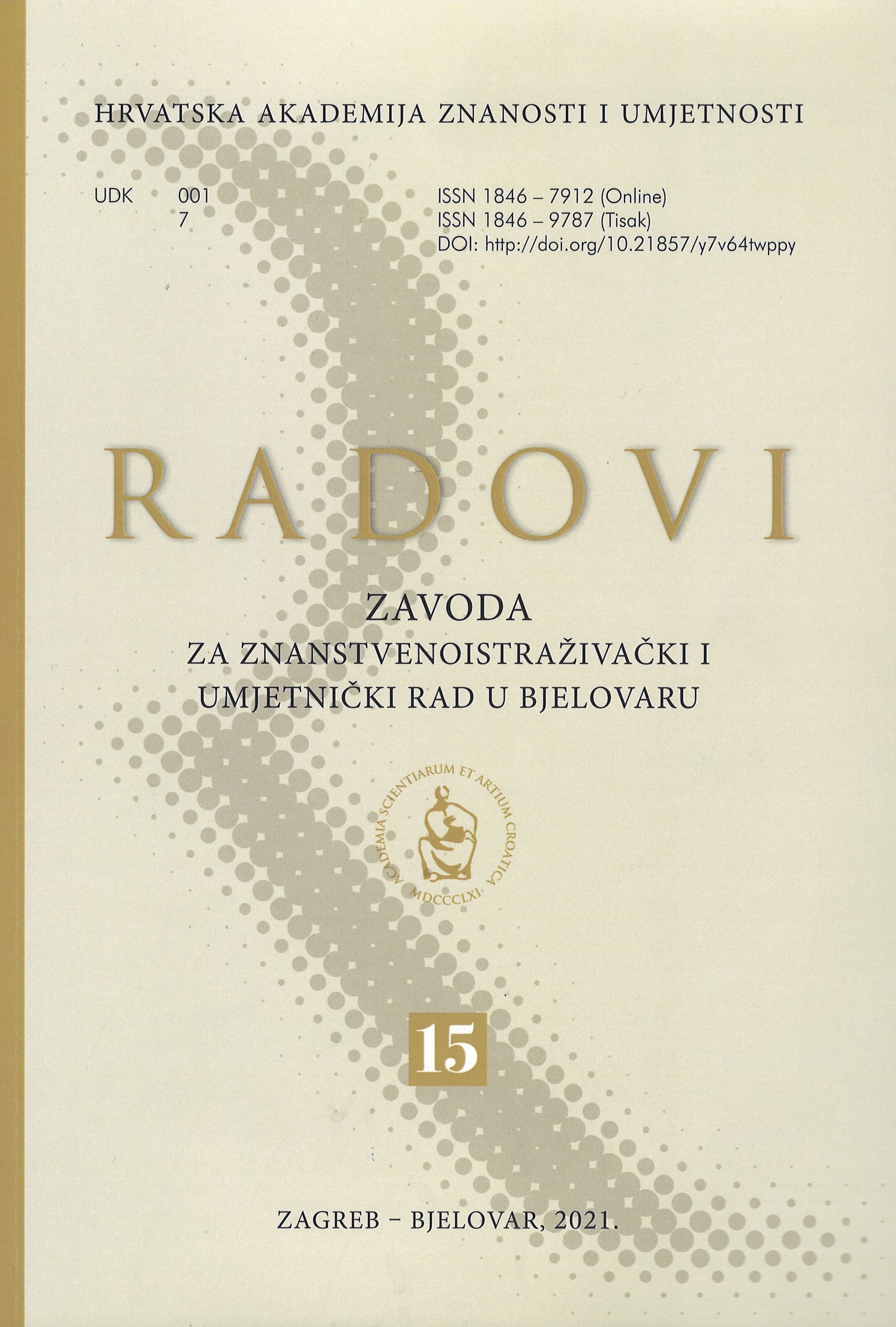Osnovnoškolsko obrazovanje nacionalnih manjina u Bjelovarsko-bilogorskoj županiji
The Primary Education of National Minorities in the Bjelovar-Bilogora County
Author(s): Dragutin BabićSubject(s): Education, School education, State/Government and Education, Ethnic Minorities Studies, Identity of Collectives
Published by: Hrvatska akademija znanosti i umjetnosti - Zavod za znanstvenoistraživački i umjetnički rad u Bjelovaru
Keywords: assimilation; Bjelovar-Bilogora County; ethnic/national minorities; focal group; national identity; primary education;
Summary/Abstract: The paper analyses the results of an empirical study (focal group) conducted in the city of Daruvar in the Bjelovar-Bilogora County. The objective of the study was to define the standpoints and opinions of the respondents regarding the primary education of national minorities at a number of levels (teachers, parents, politicians), and concerning several aspects of the educational and upbringing process. The focal points of the study were assimilation and national identity, their interrelation, and the perspectives of individual minority communities. In the Bjelovar-Bilogora County, alongside the Croats, the Czechs and the Serbs who prevail, there coexist relatively numerous national minorities, with their recent history differing from the history of majority nations. Whilst in the last three censuses (1991, 2001, 2011), the number of the Czechs has shown a gradual yet gentle decrease as a consequence of war conflicts and the downfall of the former state, the Serbian national minority has suffered rapid decrease by approximately three times. As concerns other national minorities in the County, the Hungarians and the Albanians remain relatively better represented, though much less than the Serbs and the Czechs. In this County, pupils in primary education belonging to national minorities are the Czechs, the Albanians, the Hungarians and the Serbs. Out of the studied national minorities in the County, the Czechs are the best organized one thanks to several factors – e.g. their numerousness, traditional organization skills, and successful integration into the Croatian society. Every national minority included in the study has, according to their individual reasons, difficulties in the preservation and transfer of national identity; this becomes particularly evident in the younger population. Hence education in general, and the primary one in particular, presents one of the most important factors in preserving specific national features, as well as it is a dam to assimilation.
Journal: Radovi Zavoda za znanstvenoistraživački i umjetnički rad u Bjelovaru
- Issue Year: 2021
- Issue No: 15
- Page Range: 51-74
- Page Count: 24
- Language: Croatian

